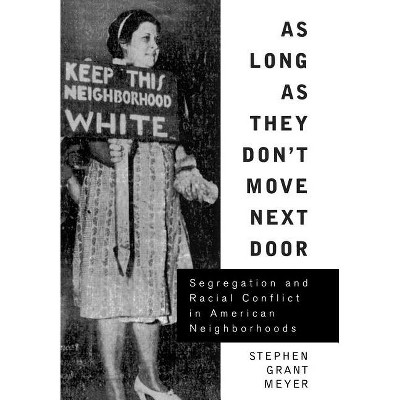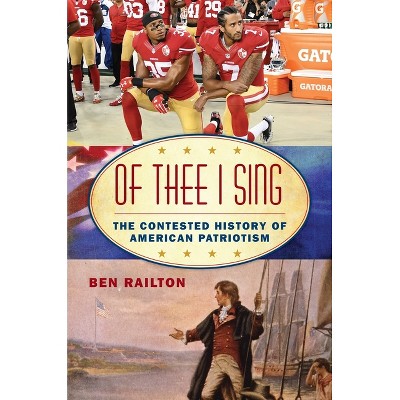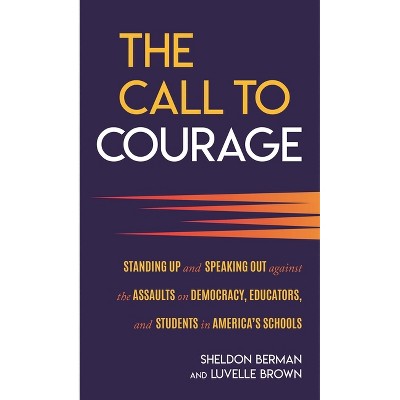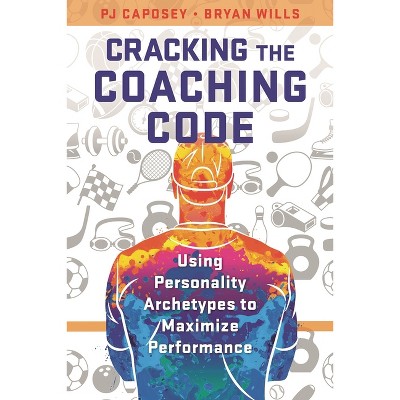Sponsored

Between Fear and Hope - by Andrew L Barlow (Paperback)
$50.00
In Stock
Eligible for registries and wish lists
Sponsored
About this item
Highlights
- This book provides a structural analysis of race, and a methodology for connecting global to national and local racial processes.
- About the Author: Andrew L. Barlow, a long-time civil rights activist, is visiting associate professor of sociology at the University of California at Berkeley, and professor of sociology at Diablo Valley College.
- 224 Pages
- Social Science, Minority Studies
Description
About the Book
This book provides a structural analysis of race, and a methodology for connecting global to national and local racial processes.Book Synopsis
This book provides a structural analysis of race, and a methodology for connecting global to national and local racial processes.Review Quotes
It is the rare treatise that contributes to and advances a more fundamental understanding of race as a relationship to power and privilege. Andrew Barlow's magisterial Between Fear and Hope is just such a book-broad in scope and richly theoretical, yet always maintaining a balanced focus on the local and mundane ways in which class, race, and ethnicity interpenetrate and shape our daily lives.
Between Fear and Hope gives us a cogent and insightful analysis of how globalization makes it harder to remedy the wrongs of racism in the contemporary United States while at the same time focusing our attention on strategies of fighting for racial justice in a globalized world. Barlow has provided a roadmap of where we have been and where we might go that is both readable and well-researched.
An inspiration for activists in the movements for social justice. This book is a must-read for those seeking to understand not only the complex realities of globalization, race, and class, but also how to work for justice in these times.
At a time when racism seems to be growing, Barlow both provides much-needed clarity of analysis and points the way toward greater racial justice and equality.
Barlow has written an engaging and provocative story, one that may be particularly liked by critics of globalization. It offers an original perspective on the local effects of globalization and provides good syntheses of the literatures on the topics of globalization, racism, and the U.S. Civil Rights movement.
In this bleak world, however, there is a glimmer of hope for racial justice if immigrants, workers, and, yes, their middle-class allies, mobilize in solidarity to build a new civil rights, human rights, and labor movement. Recommended.
In this carefully and convincingly argued exposition Andrew Barlow demonstrates how market globalization is intensifying a new 'color-blind' racism. At the same time, social globalization of peoples promotes a countervailing antiracist consciousness and resistance that could profoundly reconfigure U.S. politics. Between Fear and Hope is a major contribution, a provocative social analysis that is at once sobering and hopeful.
About the Author
Andrew L. Barlow, a long-time civil rights activist, is visiting associate professor of sociology at the University of California at Berkeley, and professor of sociology at Diablo Valley College.Dimensions (Overall): 8.94 Inches (H) x 6.38 Inches (W) x .49 Inches (D)
Weight: .65 Pounds
Suggested Age: 22 Years and Up
Number of Pages: 224
Genre: Social Science
Sub-Genre: Minority Studies
Publisher: Rowman & Littlefield Publishers
Format: Paperback
Author: Andrew L Barlow
Language: English
Street Date: June 5, 2003
TCIN: 1004110533
UPC: 9780742516199
Item Number (DPCI): 247-22-0885
Origin: Made in the USA or Imported
If the item details aren’t accurate or complete, we want to know about it.
Shipping details
Estimated ship dimensions: 0.49 inches length x 6.38 inches width x 8.94 inches height
Estimated ship weight: 0.65 pounds
We regret that this item cannot be shipped to PO Boxes.
This item cannot be shipped to the following locations: American Samoa (see also separate entry under AS), Guam (see also separate entry under GU), Northern Mariana Islands, Puerto Rico (see also separate entry under PR), United States Minor Outlying Islands, Virgin Islands, U.S., APO/FPO
Return details
This item can be returned to any Target store or Target.com.
This item must be returned within 90 days of the date it was purchased in store, shipped, delivered by a Shipt shopper, or made ready for pickup.
See the return policy for complete information.











